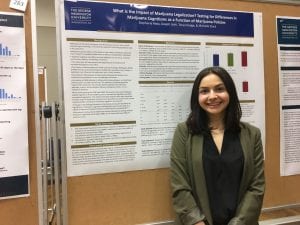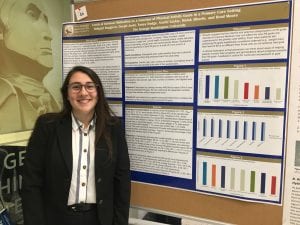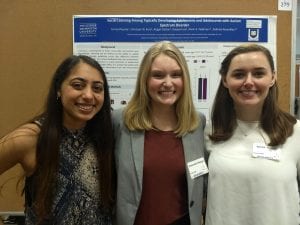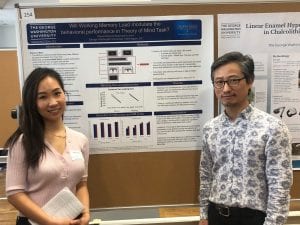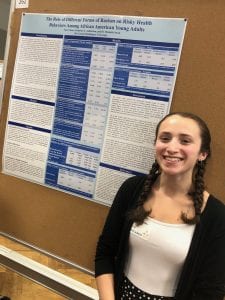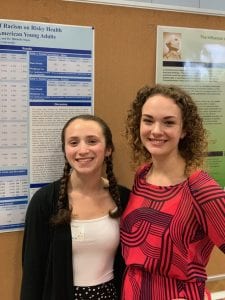
Reflections as a Research Assistant for the Unified Parenting Project (UPP)
In January 2018, I accepted the position as a research assistant (RA) for Dr. Gee’s Diverse Family Relationships Lab; this lab is currently conducting the Unified Parenting Project (UPP). UPP specifically looks at father involvement and ways to improve communication between parents. This project is unique because we interview low-income parents who have different ethnic backgrounds. My role as a research assistant in Dr. Gee’s lab includes attending weekly meetings, conducting interviews with participants, and holding lab hours. At the weekly meetings, everyone in the lab discusses interviews of the previous week. Interviews consist of at least two research assistants meeting a participant in different parts of DC to gather their responses and attitudes towards a multitude of measures, like child behavior problems and expectations of their co-parent. At lab hours, I call participants to schedule interviews, transcribe interviews, and look for potential recruitment sites.
This research experience has truly given me an “only at GW” experience. Most undergraduate students stay on-campus at their universities, and rarely go outside their university “bubble.” The Unified Parenting Project seeks participants from the greater DC metropolitan area, so I have the opportunity to go to different parts of Washington DC on a weekly basis. This experience is unique because I get to interact with individuals who have differing socio-economic statuses (SES), many of whom are ethnic minorities. Their responses have opened my eyes about the ways external factors influence behaviors.
In addition to providing me with the opportunity to be immersed in the greater DC metropolitan area, Dr. Gee’s lab allows its research assistants to use the data from UPP for other research. For instance, I was very interested in parenting styles and possible mediating factors between co-parenting quality and child behavior problems. I talked to Dr. Gee and several of her Ph.D. students about my interest, and they suggested that I use the data from UPP to further investigate this topic. I am working on this poster with two other research assistants, and we recently submitted our abstract to GW Research Days.
My current career goal is to get a Ph.D. in clinical psychology and become a practicing psychologist. This research experience will show prospective graduate schools that I am motivated in psychology and that I am competent in conducting research and analyzing data. In addition, this research experience gave me insight into how people of different ethnic backgrounds or different socio-economic statuses think about certain topics. I learned from hearing participants’ responses from interviews that discrimination still affects people; this knowledge will allow me to understand others more, as I am aware of some of the daily battles people fight every day.
The Unified Parenting Project has taught me how to code, cold-call potential participants or recruitment sites, conduct research in an ethical manner, and how to use my passion for psychology as a motivator to go beyond what is required. When I used UPP data to conduct my own research, I was taught how to code and re-code variables, and how to run analyses to discover correlations between variables. Not only did this research experience teach me how to interview participants, but this experience also taught me how to analyze the data I collected; I can use this knowledge to conduct future research. In addition, I learned how to conduct research in an ethical manner; now that I know how to conduct research in an ethical manner, I am able to conduct future research without unintentionally harming future participants. Finally, Dr. Gee’s lab is unique while there is a minimum number of hours that each research assistant is required to work each week, Dr. Gee encourages students to exceed these hours and pursue personal research interests in her lab. As a result, I learned that if I wanted to become more involved, I must take initiative.
The aforementioned skills, coupled with an “only at GW” experience, has helped me grow as a person, as a student, and as a researcher. I am surrounded by fellow research assistants who are motivated and supportive. I am proud to be a research assistant for Dr. Gee’s Unified Parenting Project because it has provided me with valuable skills while opening my eyes to perspectives I wouldn’t otherwise see.



